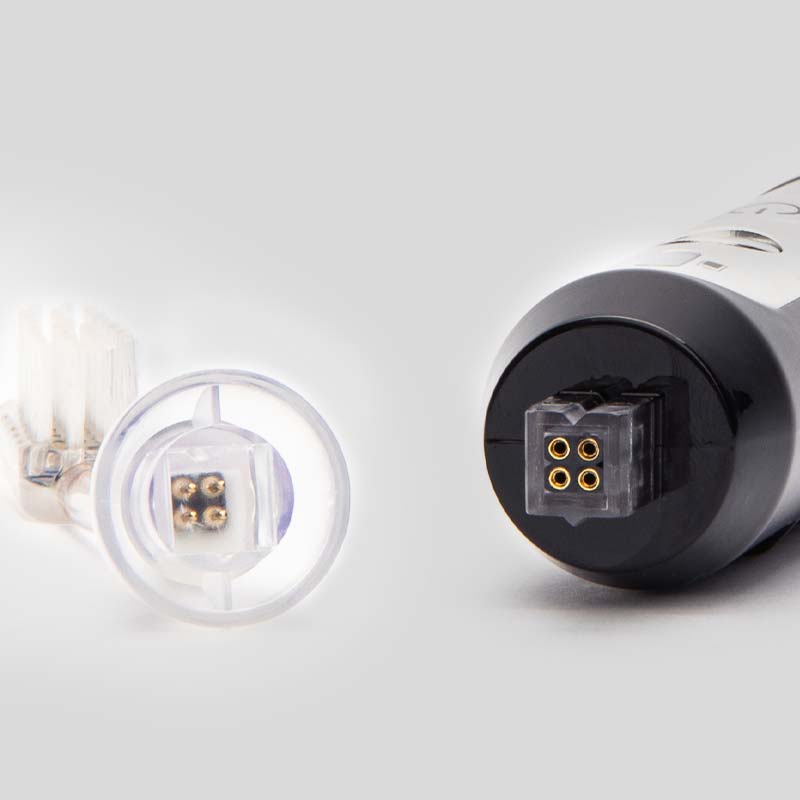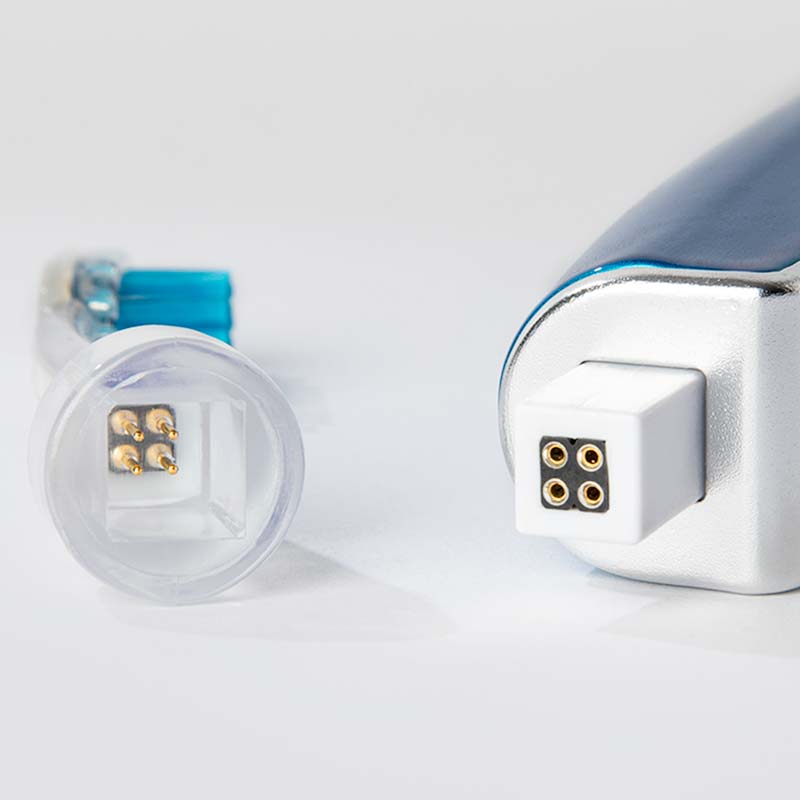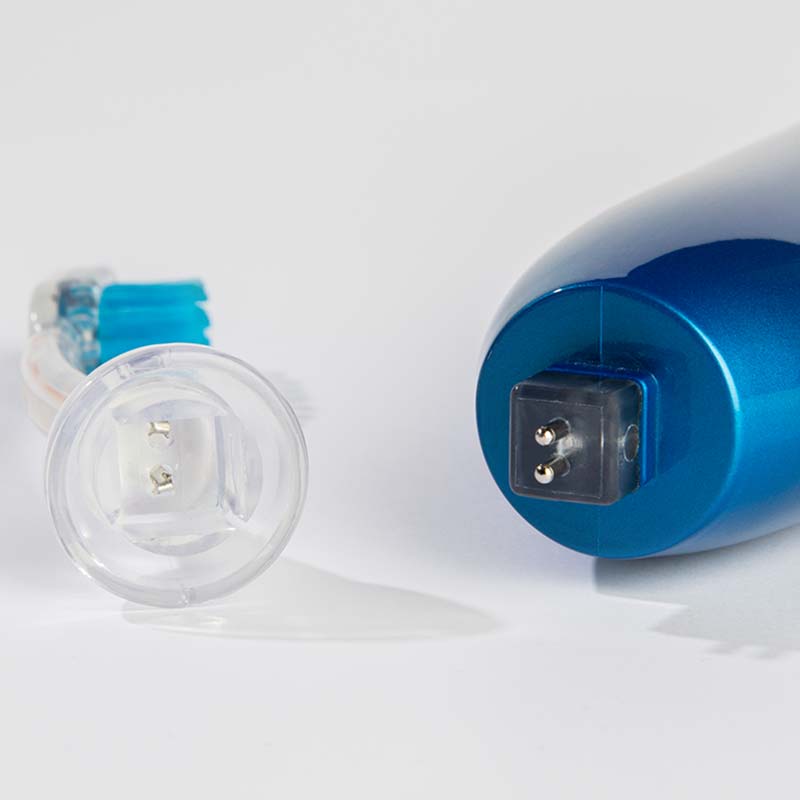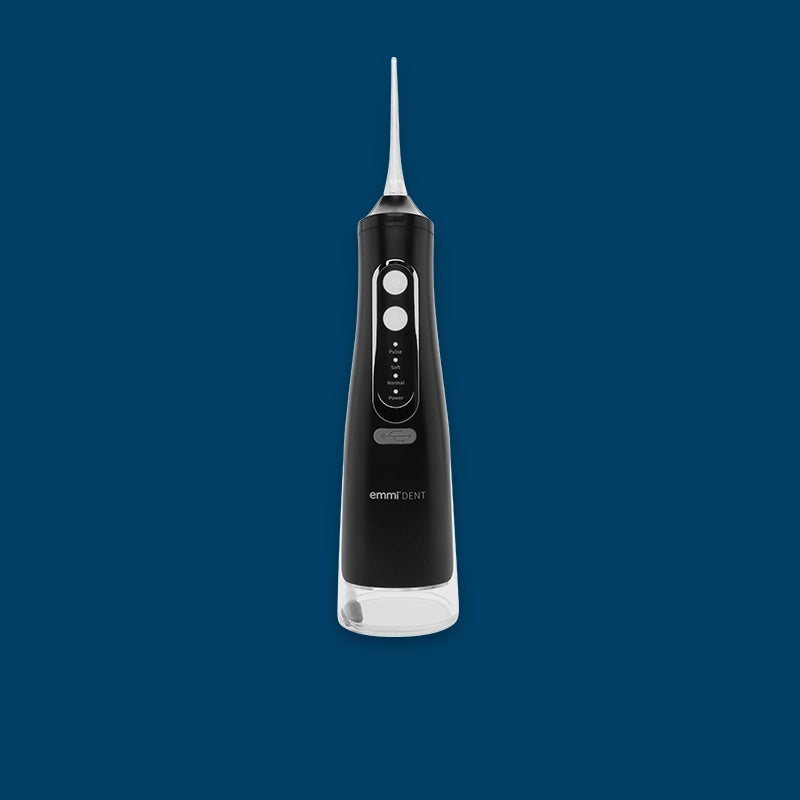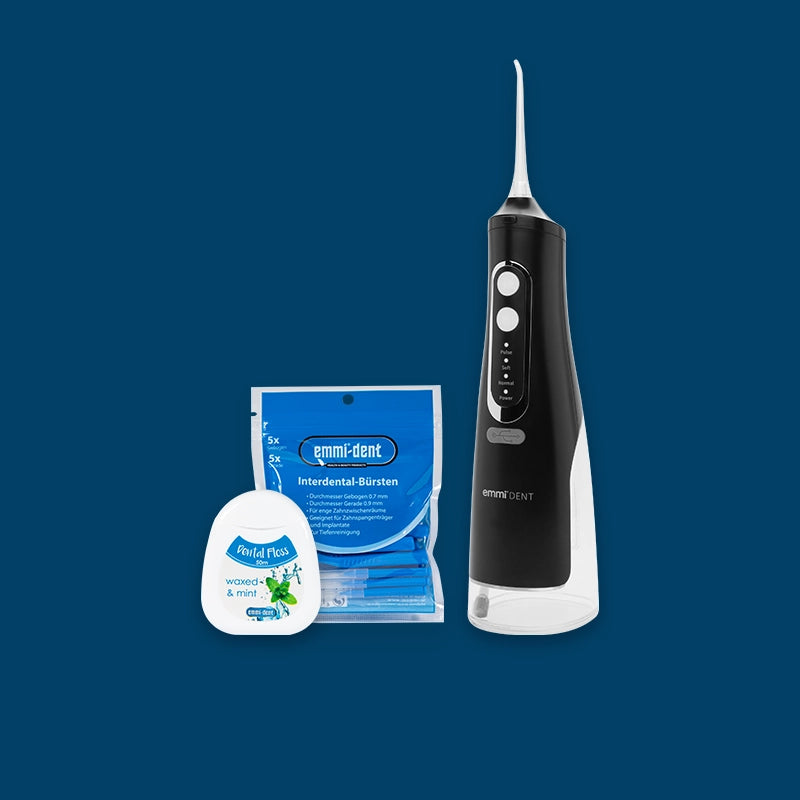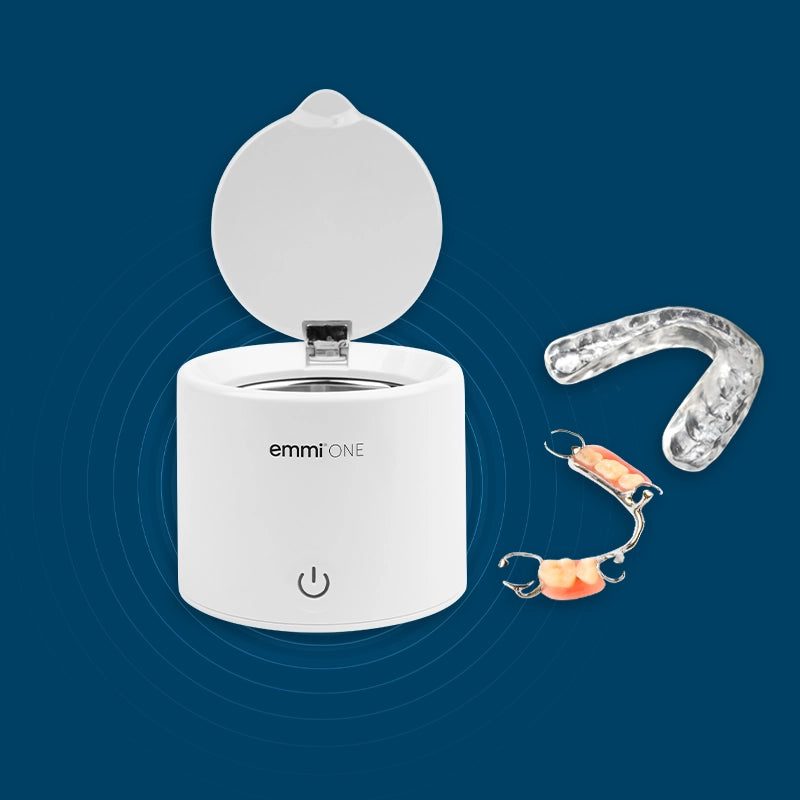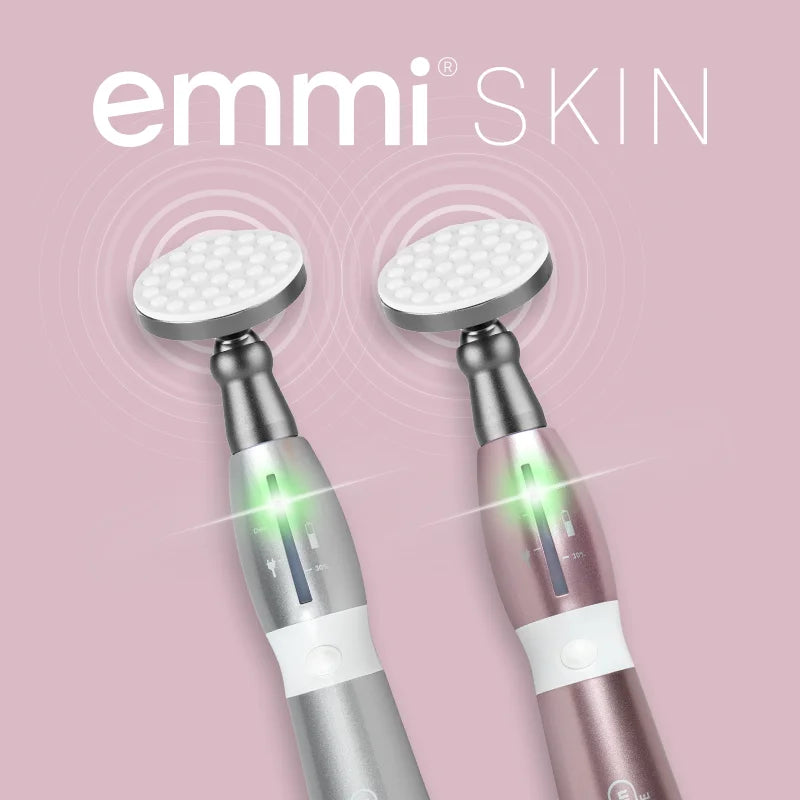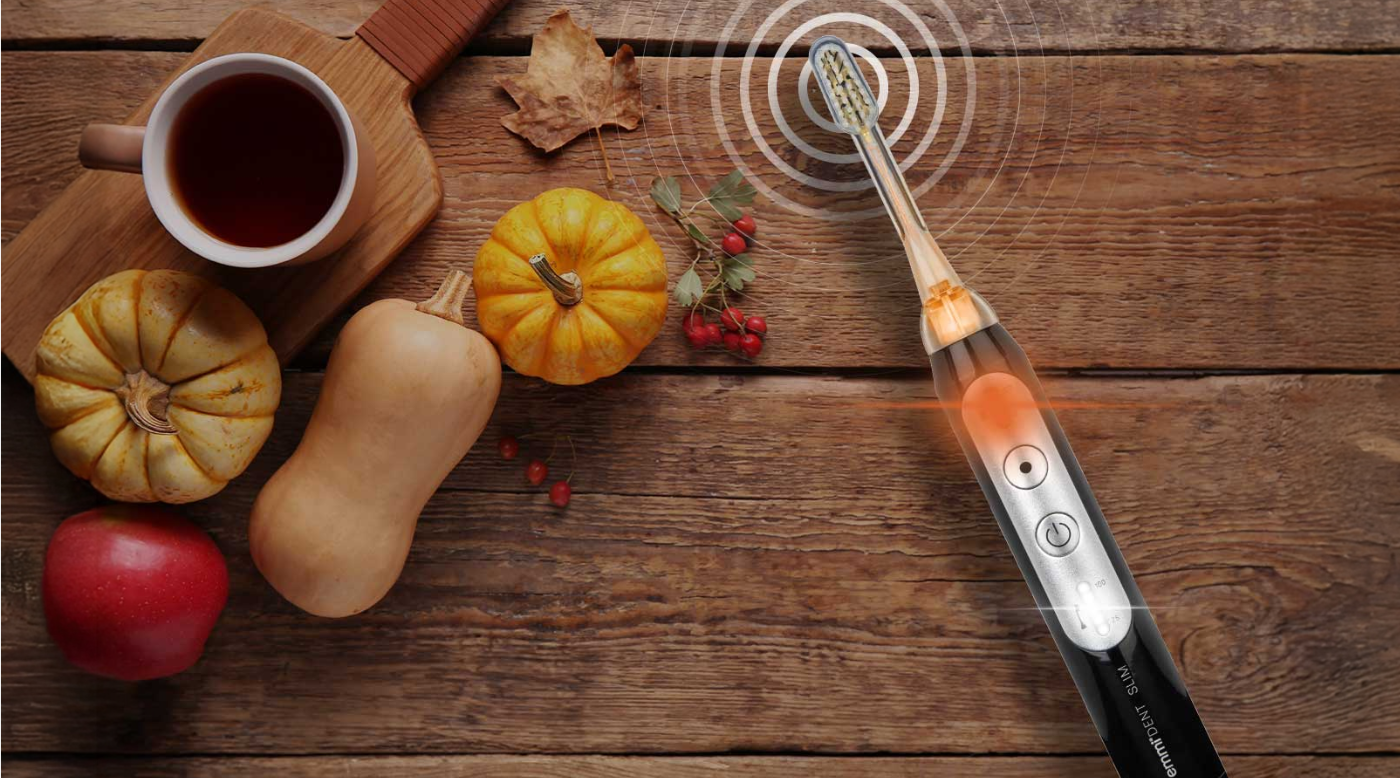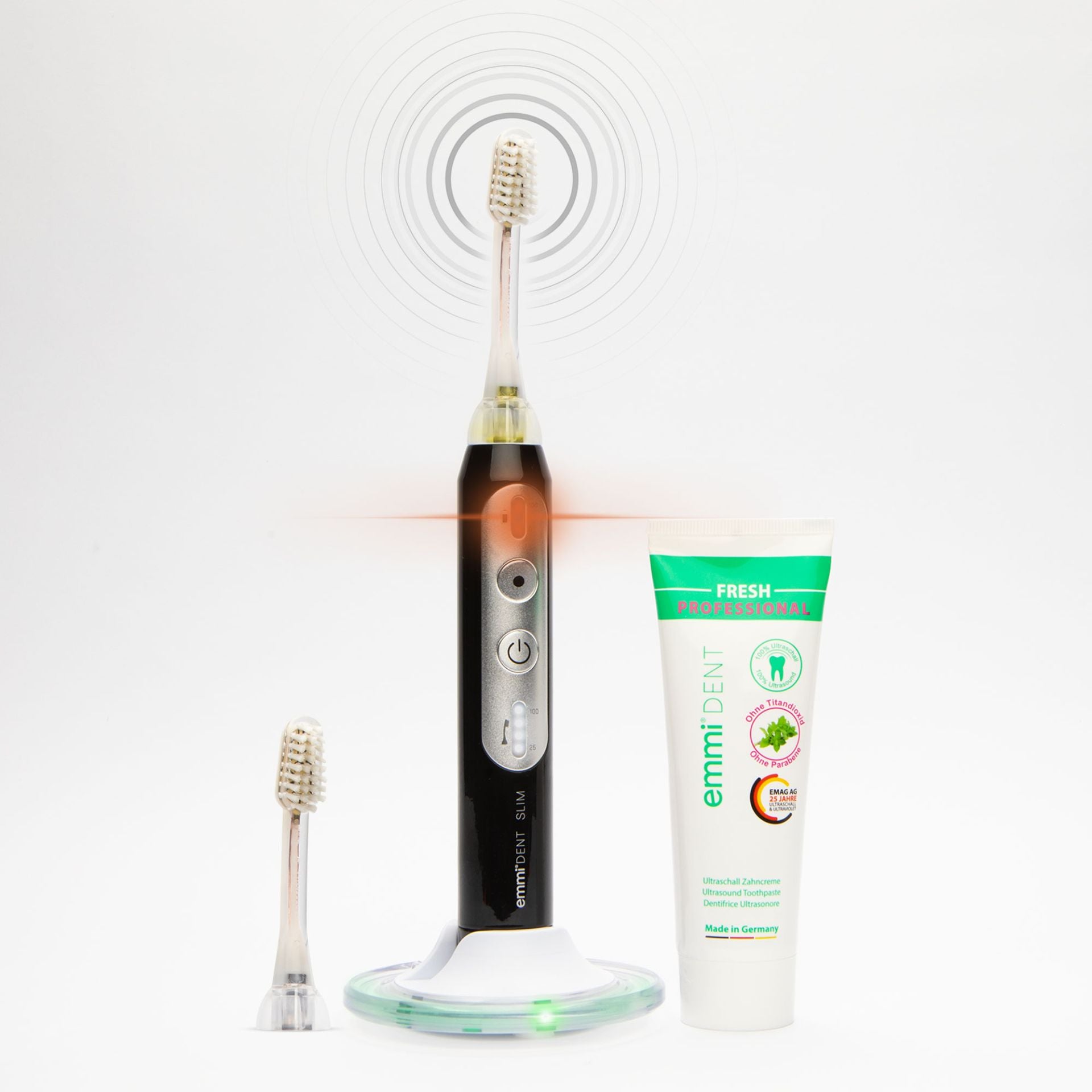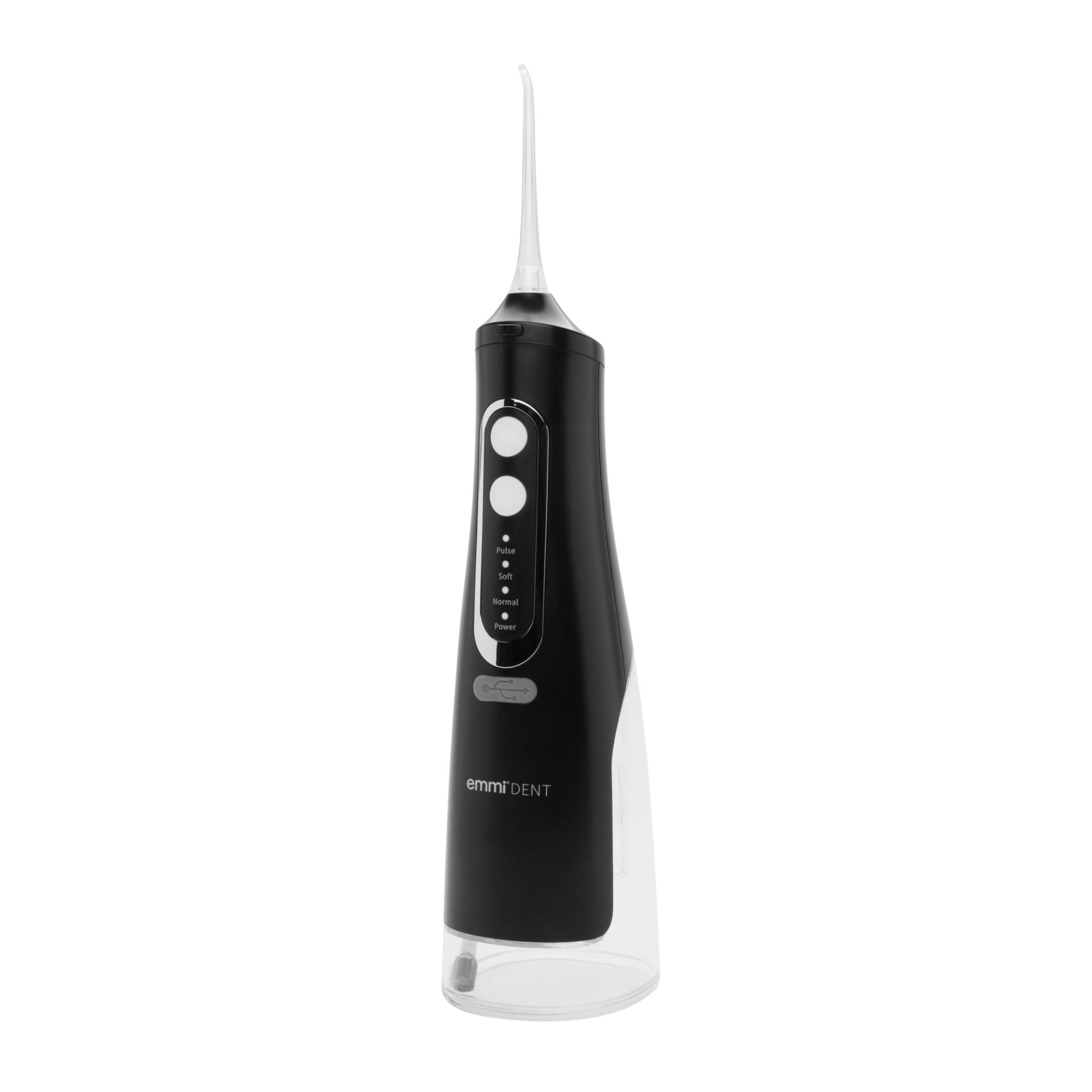Recess in the schoolyard. Two teenagers whisper behind their hands, while another quietly retreats, unsure and with a lowered gaze. What at first glance appears to be a harmless teen scene often has a serious underlying cause: bad breath. A topic that hardly anyone talks about, yet affects so many, especially during puberty.
Bad breath is not uncommon among teenagers. It often occurs as a completely normal side effect of hormonal changes and has nothing to do with poor hygiene. Nevertheless, it often cuts to the heart, because no one wants to attract attention with unpleasant breath at this sensitive age.
Are you wondering where bad breath comes from, how you can help your teenager, and what kind of care is really appropriate now ? Then you've come to the right place. In this article, we delve into the hormonal connections , show you the role of saliva, nutrition, and dental care, and introduce you to a gentle, effective helper: our emmi-dent Slim ultrasonic toothbrush , especially suitable for sensitive gums during the growth phase.
No scrubbing, no irritation, because good dental care should feel easy, even at an age when many things are difficult.
Why does breathing change during puberty?
What happens in the body rarely remains hidden in the mouth. Especially during puberty, the hormonal ups and downs affect not only skin, mood, and sleep. Oral health also begins to falter. Why your teenager suddenly complains more frequently of bad breath or wakes up with a dry mouth often has deeper causes. Here, you'll learn about the internal processes behind this and why a holistic approach is so important.
Hormones & oral flora – the chaos in the background
During puberty, hormone levels are completely disrupted. This is well known. But what many people don't realize is that the oral flora also changes noticeably during this time. Certain types of bacteria increase, while others disappear. This leads to a microbial imbalance that often manifests itself in unpleasant breath. Even with good dental care.
At the same time, hormones also influence saliva flow , which plays a key role in oral health. Saliva acts as a natural rinse, protecting tooth enamel and neutralizing acids. If this protective layer is missing, the risk of bad breath increases. Less saliva = less cleaning = more odor.
Sebaceous glands & saliva production in transition
The hormonal changes don't just affect the face. The sebaceous glands throughout the body are also working at full speed – this explains not only impure skin but also more intense body odor. At the same time, the mouth dries out more quickly, especially at night. When the first thing you do in the morning smells unusual in the kitchen, it's often harmless but also very unpleasant.
Stress & lack of sleep: the invisible amplifier
Late-night studying, school stress, insecurities, and emotions – all of these indirectly affect oral health. Stress weakens the immune system , promotes minor inflammation in the mouth, and thus contributes to the development of bad breath.
What you can remember:
Hormonal changes disrupt the bacterial balance in the mouth
Less saliva means less natural cleansing, and breath suffers
Stress, lack of sleep and emotional stress also have a noticeable impact on oral health
Understanding is the first step. Because when you know what's behind the changed breathing, you can provide support more calmly and specifically – without pressure, but with real knowledge behind you.
How to recognize hormonal bad breath
A slight odor from your breath immediately after waking up is completely normal. We all experience it. But at what point does a harmless phenomenon become a topic worthy of attention? Especially during the sensitive phase of puberty, it's important to take a close look without causing anxiety.
These signs may indicate that there is more to it:
The unpleasant smell persists despite thorough brushing
Bad breath occurs mainly in the morning or during stressful periods
Your teenager seems reserved in conversation or avoids closeness
The tongue shows a whitish coating
There are no other health causes such as tooth decay, tonsillitis or stomach problems
If you recognize several of these points, it's not a cause for concern, but rather a good moment for an open, understanding conversation. Often, it helps to simply address the issue calmly and look for solutions together . This way, your teenager feels seen but not judged – and you lay the foundation for a new sense of security in everyday life.
Hygiene basics for teens: How to make the routine cool
Brush thoroughly twice a day—that's what every health brochure says. And of course, most young people know that too. But there's sometimes a gap between knowing and doing. When motivation is lacking, lectures don't help; smart solutions do.
A simple two-step routine makes all the difference:
- First, clean your teeth thoroughly – for example with the emmi-dent Slim , which works without scrubbing
- Then gently brush or scrape the tongue – because this is where many odor-active bacteria accumulate
Tongue cleaning without gag reflex
Many teenagers find cleaning their tongue unpleasant or disgusting. A gentle way to start: simply brush gently over the back of your tongue with a toothbrush. Those who are sensitive can also try a tongue gel first. The important thing is that the cleaning actually takes place—not how perfectly it is done.
Why our emmi-dent Slim is convincing
Especially with sensitive gums or braces, traditional scrubbing is often problematic . The emmi-dent Slim solves this problem with modern ultrasound technology. Without any pressure, without any friction. Millions of microbubbles clean gently and deeply , even in hard-to-reach areas – and in a way that teenagers find pleasant.
What you can remember:
Brushing your teeth is not enough, your tongue must also be cleaned
The right toothbrush motivates, ultrasound is cool, thorough and gentle on sensitive gums
Clear routines and good information create trust – without any finger-pointing
Food and drinks: friends and enemies of fresh breath
Something that tastes delicious isn't always kind to your breath. Chocolate bars, soft drinks, or energy drinks provide exactly what bacteria in your mouth are waiting for: sugar. The result: They multiply and produce sulfur compounds , which are responsible for the unpleasant odor. But it's not just sweet things that are problematic. Protein-rich foods like cheese or salami can also affect your breath because they also release odor-active substances during the breakdown process.
What's good for your breath:
Drink plenty of water. At least 1.5 liters a day. This keeps your mouth moist and flushes away bacteria.
Crunchy fruits and vegetables such as apples, carrots or celery act like a natural toothbrush and promote saliva flow.
Chew fresh herbs , such as parsley or mint. They have antibacterial properties and provide a pleasant feeling of freshness.
Sugar-free chewing gum with xylitol stimulates saliva flow and helps you quickly get a fresh feeling in your mouth after eating.
With small everyday helpers, you can make a big difference. For fresh breath, a good feeling, and a new ease in speaking and smiling.

